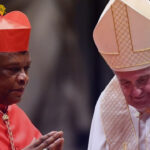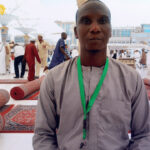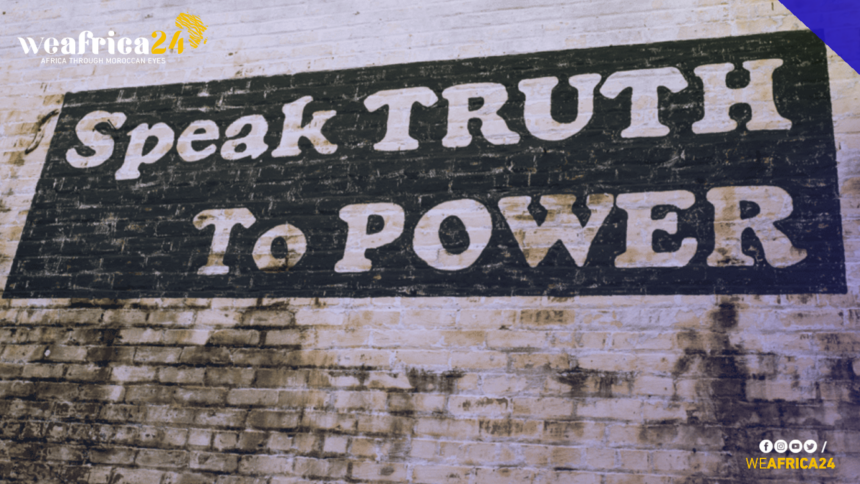”Wars will end when men refuse to fight. It is the responsibility of intellectuals to speak the truth, and expose the lies.”
The first of these two evocative statements is an anti-war rephrasing made by Albert Einstein, the world-renowned physicist whose intellectual achievements have made the word ‘Einstein’ synonymous with genius. The second reference is from the key message gleaned from a reading of Noam Chomsky’s seminal 1967 essay: “The Responsibility of Intellectuals”.
Noam Chomsky is an American professor and prominent public intellectual known for his work in linguistics, political activism, and social criticism. His ideas have revolutionized the study of language and have had a profound impact on psychology, philosophy, and intellectual life more broadly. He is also a longstanding political activist, and leading critic of US foreign policy.
He happens to be among the most cited living authors (on topics including war and politics) – with his work including many books, hundreds of articles, countless speeches, interviews, letters and emails.
“The Responsibility of Intellectuals” has aptly been described as the single most influential piece of anti-war literature of the Vietnam War period. With many raging wars of indiscriminate destruction to the lives of countless innocent civilians currently consuming our world – this message is presently more urgent, as it was back in 1967 when it was first published.
The Paradox of Peace in Our Time
Compared to our hunter-gatherer days or the Middle Ages, our chances of dying by violent crime or as the result of war are supposedly miniscule. In fact, the 21st Century is the most peaceful era in human history, according to research. Paradoxically, there are more than 30 countries currently in conflict (the list varies between sources due to different dimensions to what counts as a war), with the types of these conflicts varying widely.
While their severity and duration may differ, they all have significant impact on the affected populations, often resulting in high number of casualties – as well as devastating humanitarian crises.
The Second Congo War (also called Africa’s First World War, because of its scope and destructiveness) is the deadliest war of the 21st Century, taking place between 1998 and 2003. Dragging the armies of nine countries and an assortment of affiliated militias, the conflict caused 5.4 million deaths, principally through disease and malnutrition – making the Second Congo War the deadliest conflict worldwide since World War II.
Another 2 million people were displaced from their homes or sought asylum in neighboring countries. More devastating, Congo has never recovered from this engulfing web of war. Armed insurrection continues to date, especially in the mineral rich eastern provinces bordering The Africa Great Lakes region.
World War II (between 1939-1945) remains the deadliest conflict in human history at 50-85 million fatalities, most of whom were innocent civilians in The Soviet Union and China. This year marks 78 years since the end of this destructive global conflict – yet, war is still a harsh reality into the present.
The Oxford English Dictionary defines “war” as:
√ a state of armed conflict between different countries or different groups within a country;
√ a state of competition or hostility between different people or groups, or;
√ a sustained campaign against an undesirable situation or activity.
There are many possible reasons for war to begin between — or more often, within nations. Among these are the quest of economic gain, territorial expansion, religious differences, nationalistic fervour, civil war, and political revolution. Often, country leaders become primary motivators of conflict by instigating a territorial dispute, trying to control another country’s natural resources, or exercising authoritarian power over people. Countries subject to prolonged conflict can become war-torn, requiring many decades to rebuild their infrastructure, economy, and other functions.
Conflicts in 2023 – A Vicious Cycle Continues
This year alone has seen several armed conflicts and insurrection erupting, many as a result of the long unresolved simmering out of control. From the most recent October 7 Israel-Hamas war, Israel-Lebanon shelling and Israel incursions into Occupied West Bank – this year’s list of eruptive hot spots, as well as ongoing conflicts include:
✓ The concluded Azerbaijani offensive in Nagorno Karabakh.
✓ The ongoing Russian invasion of Ukraine.
✓ Civil wars and infighting in Syria, Yemen, Myanmar, Sudan and Libya.
✓ Tensions between: Ethiopia/Tigray region/Eritrea, Congo/Rwanda, and the periodic violent eruptions by armed groups in Eastern DRC.
✓ Military coups in Gabon and Niger (with armed group attacks in Mali, Niger)
✓ Insurgency in Southeastern Nigeria.
✓ Border skirmishes between India and Pakistan.
✓ Gang violence in Haiti, gang crackdowns in El Salvador and Honduras, and gun violence by armed drug cartels in Mexico.
✓ The Wagner Group Rebellion.
✓ Western Saharan clashes.
✓ Abyei conflict in South Sudan.
✓ The continuous destabilizing effects of Somalia’s long-standing civil war, and Somaliland’s recent ethnic infighting.
This is not new information. You must have heard about these conflicts. If not most of them, at the very least the key headline grabbing war bulletins.
Needless to say, there is the special role of media in modern democracies – and how they manufacture consent’ by keeping certain views and topics off the agenda. A phrase originally coined in 1922 by the American journalist Walter Lippmann (1889–1974) to refer to the management of public opinion, “Manufacturing Consent: The Political Economy of the Mass Media” took book form in 1988, by Edward Herman and Chomsky.
It argues that the mass communication media (of the United States, but can be inferred to any other country of today) “are effective and powerful ideological institutions that carry out a system-supportive propaganda function, by reliance on market forces, internalized assumptions, and self-censorship, and without overt coercion”, by means of the propaganda model of communication.
Especially where the issues involve substantial U.S. economic and political interests (the current leading power of the world) and relationships with friendly or hostile states, the mass media usually function much in the manner of state propaganda agencies.
Chances are, we have fallen victim to this phenomenon, especially if we have only relied upon one media source without doing further cross-referencing across various news establishments to establish different perspectives, or taking detailed further study to the context of these conflicts – and how they affect their recent developments.
Chomsky’s essay is an attack on experts, technocrats, and intellectuals of all kinds who serve the interests of the powerful by lying, producing propaganda, or by providing ‘pseudo-scientific justifications for the crimes of the state’.
It’s just obvious that intellectuals should tell the truth. It is equally obvious that it is not only intellectuals who have this responsibility. But Chomsky argues that intellectuals have responsibilities that go beyond the responsibilities of others because they have a particularly privileged position. He wrote:
“For the privileged few with this considerable advantage (including those of us living in relatively free societies, and can express our opinions in public without the fear of being put in prison or tortured for doing so), we have the responsibility to seek the truth lying hidden behind the veil of distortion and misrepresentation, ideology and class interest – through which the events of current history are presented to us.”
I find myself in agreement with the Father of Modern Linguistics.
All this may seem perfectly obvious. Why was it worth saying then? Why is it worth saying again now? The key reason is that so many public figures are happy to lie and propagandize, now as back then – and the reaction, or rather the lack of it, suggests that we do not always take seriously the responsibility to tell the truth. Additionally, in the face of the temptation not to make a fuss, not to rock the boat, and not to endanger one’s livelihood, it is almost always easier to serve the interests of the powerful, or to say and do nothing, than it is to stand up for what is right by speaking out.
It is said that war is just older men, sending younger men, to kill women and children. There are no real victors in war. The consequences are dreadful: the destruction of physical infrastructure, the weakening of economic and political institutions, and the obvious losses in human lives, among others. Wars unavoidably and drastically alter development and social cohesion, leaving scars that may never heal.
War will cease when men refuse to fight. What are you going to do about it? Are you willing to fight for peace? Willing to speak truth to power – and affirm that responsibility?
At such a crucial juncture in our globalized human community, where terrible atrocities are being carried out every day en masse, we need to pause for a hot minute and have a sober reading into the ignored reality of this responsibility – if we are to carry on into our shared global future. Intellectuals or not, this is a clarion call for our collective action.
As for those who have taken arms to violent rampage: refusing orders made by divisive war hawks to fight against fellow beings and opting instead for dialogue during dissent is the highest act of bravery – not to mention the best of human decency. History suggests that the goals of the powerful are consistently more self-serving, and the effects of their actions less pleasant for those of us under their power.
Chomsky has been speaking out now for more than 50 years, and his work has been an unparalleled resource and inspiration for those of us who want to see through the lies and the propaganda and understand the world so that we can change it for the better. His work and the example he sets should continue to inspire us all to speak truth to power.







